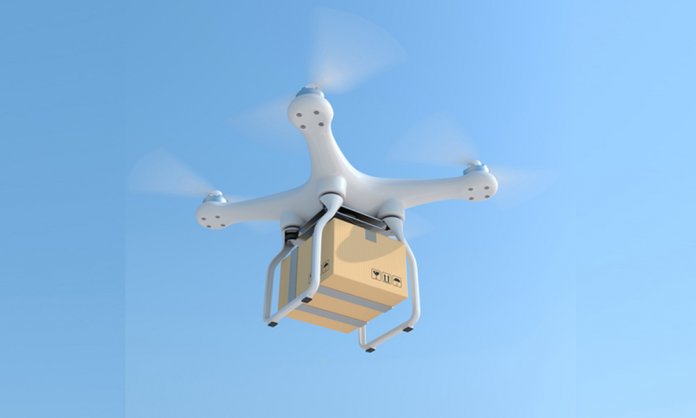Friday, April 10th: Doctors at Haripur DHQ system have turned to technology in the time of crisis. Those patients, who are most vulnerable to the virus or the ones that consume immunosuppressants will be delivered essential medicines by the hospital with the help of a drone.
Patients who have kidney, heart, eye and other severe diseases are advised to stay home to avoid contact with the virus. “We will send them the medicines using the drone,” said MS DHQ.
Doctors are also offering free of charge consultation for the patients over the phone.
Patients who do not have enough resources because of the economic crunch must inform the hospital as the hospital is funding medicine to prescribed patients who no longer can afford it.
Pakistani Students Develop a Kit to Identify COVID-19 Patients
For more news and updates, stay tuned to Brandsynario.
March 31st, 2020:
The United States Food and Drug Administration (FDA) has granted authorization for limited emergency-use of two antimalarial drugs.
Earlier, these medications were titled ‘game-changers’ by US President Donald Trump. On the other hand, the US Department of Health and Human Services (USDHHS) is stockpiling chloroquine and hydroxychloroquine.
According to USDHHS, the FDA had allowed them “to be distributed and prescribed by doctors to hospitalized teen and adult patients with COVID-19, as appropriate, when a clinical trial is not available or feasible.”
However, even though the President has referred to these drugs as a “gift” and is pushing for these for treatment, medical experts say otherwise. Moreover, there have been reported deaths from self-medication of the mentioned drugs.
Researchers including Anthony Fauci, the United States’ leading infectious disease expert, have urged the public to remain cautious until larger clinical trials validate smaller studies.
The National Institutes of Health and the Biomedical Advanced Research and Development Authority are meanwhile conducting such trials.
March 26th 2020: Self-medication has always been frowned upon by many doctors. Mainly this is because without understanding what we really have, we try to treat it our way only to make it worse.
The Corona Experts Advisory Group (CEAG) held is first official meeting Tuesday, where public health was widely discussed. Following the meeting, CEAG has issued a warning to individuals not to self-medicate themselves nor to take Chloroquine.
CEAG explained that unsupervised usage of Chloroquine and Hydroxichloro-quine can cause serious side effects/untoward reactions and will only deteriorate one’s condition.
“The CEAG in its first meeting on Tuesday deliberated the opinion of using Chloroquine and Hydroxichloroquine for prophylaxis of COVID-19 based on currently available evidence,” reads a meeting document.
Moreover, an official also added that the experts have issued these warnings after a number of complaints had come forth from people who had been using these drugs for the treatment.
Sindh Govt. Introduces Mobile Service For Ration Distribution Among Daily Wagers
Ever since US President Donald Trump announced that the anti-malaria drug Chloroquine is the answer to fighting COVID-19, many started to take the drug with unsupervised doses only using the information available on the internet!
“The committee is of the opinion that there is insufficient scientific evidence to advise Chloroquine and Hydroxichloroquine for prophylaxis (prevention) of the COVID-19”, reads the document.
Furthermore, the group also shared guidelines for the protection of the frontline health professionals who have been attending to CoronaVirus patients at hospitals for Punjab.
There are 3 levels of protection that have been set in place – general pre-examination triage/OPDs, triage centres for corona general wards and isolation wards/ICUs, and HDUs to be adopted by health professionals during treatment of the patients.
It is important to mention here that CEAG has declared it mandatory for all medical staff members to use/wear surgical masks across all healthcare institutes in Punjab. Staff members working in OPDs of infectious diseases and OPDs of respiratory care, endoscopic examination rooms must upgrade their surgical masks to medical protective masks (N 95) reportedly.
Usage of the protective face screen based on level III protection is now mandatory as well during the collection of specimens from patients.
“The life of N95 mask is eight days (eight hours duty per 24 hours with two hours break) provided if they do not get soiled and are used by the same user”, read the new guidelines.
Guidelines for disinfecting a room, operation theatres, and other areas where confirmed and suspected patients are kept have also been issued.
Stay tuned to Brandsynario.
Source: Dawn





































